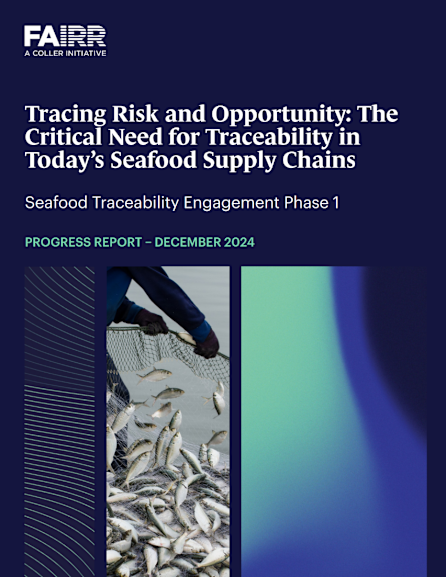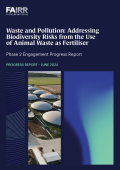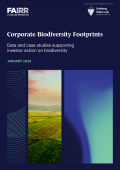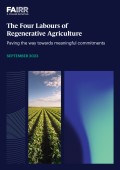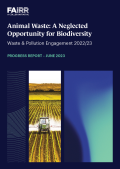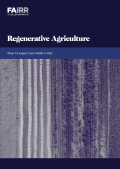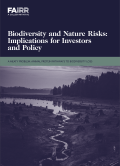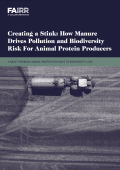Report Overview
As global demand for seafood continues to grow and seafood supply chains become increasingly complex, transnational, and opaque, the sector must enhance efforts to address persistent and serious environmental and social issues including Illegal, Unreported, and Unregulated (IUU) fishing, forced labour and human rights violations, and the growing impacts of climate change, all of which expose seafood businesses and their stakeholders to material risks. Improved transparency about the origin and production methods of seafood is a critical first step towards eliminating these issues across supply chains. Supply chain traceability is an essential tool that can enable this transparency.
This report discusses learnings and insights from the first year (Phase 1, 2023/24) of FAIRR’s Seafood Traceability engagement, a collaborative investor engagement supported by 35 investors with US $6.5 trillion in combined assets. This engagement is delivered in partnership with World Wildlife Fund (WWF-US), Planet Tracker, the World Benchmarking Alliance (WBA) and UNEP Fl's Sustainable Blue Economy Finance Initiative.
Despite a general recognition that traceability is critical, only two out of seven companies assessed have a group-level traceability commitment covering all seafood products and aquaculture operations. The implementation of these commitments and reporting on progress also remain limited.
The findings of this report can help investors:
Understand the multiple environmental and social risks companies may be exposed to due to a lack of supply chain transparency.
Provide an update on the policy and regulation landscape surrounding seafood traceability.
Encourage their portfolio companies to adopt leading practices standards regarding traceability, such as these created by the Global Dialogue on Seafood Traceability (GDST).
Deepen their understanding of the nuances between sustainability certifications and full-chain, digital and interoperable traceability.
Report highlights
Key findings from Phase 1 of the Seafood Traceability engagement include:
Traceability is critical for seafood companies to mitigate a multitude of environmental and social risks - such as Illegal, Unreported and Unregulated (IUU) fishing, overfishing and human rights abuses.
Only two out of the seven companies assessed - Thai Union Pcl and Charoen Pokphand Foods Pcl - have relatively strong traceability commitments at the group level, covering all seafood operations and aquaculture feed procurement.
Companies largely rely on certifications for their sustainability claims. However, even the most widely adopted Chain of Custody Programmes – such as the Marine Stewardship Council or the Aquaculture Stewardship Council – do not amount to companies having full-chain, digital and interoperable traceability.
Industry platforms and common standards such as the Seafood Business for Ocean Stewardship (SeaBOS) and the Global Dialogue on Seafood Traceability (GDST) can play an important role in promoting interoperable traceability standards.
Challenges commonly cited by companies to implement stronger traceability systems include a lack of data, a reliance on paper-based rather than digitised data, an ageing workforce in the seafood sector, a lack of technical capacity, and the need for sector-wide collaboration.
The Taskforce on Nature-related Financial Disclosure (TNFD) is gaining momentum, helped by the release of its sector-specific guidance on aquaculture and fishing.

